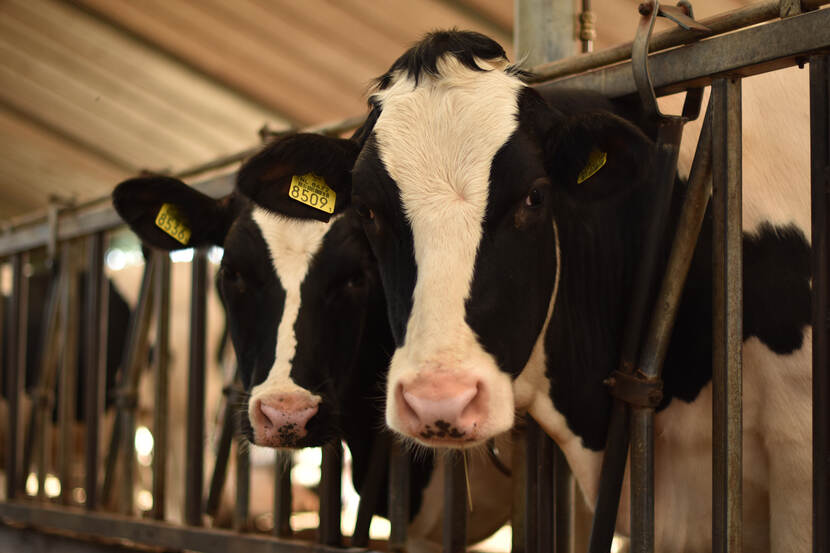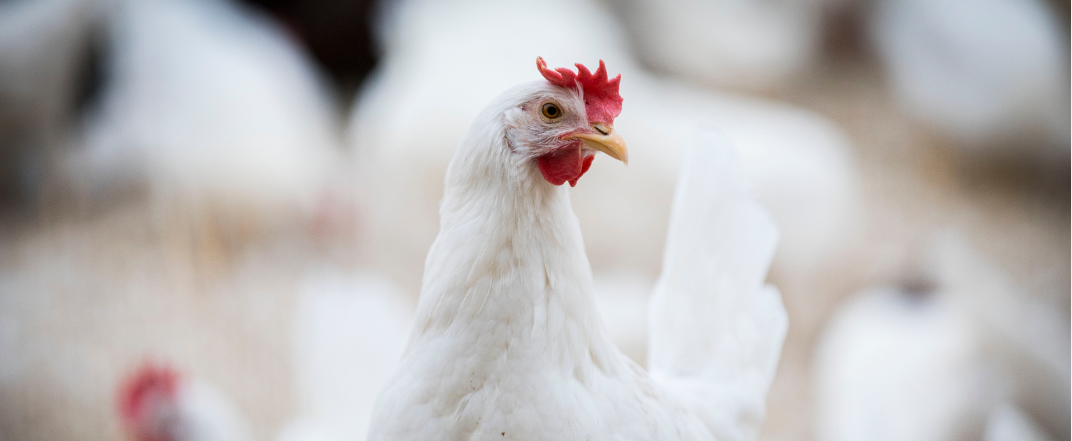Advancing sustainable animal products
We are happy to invite businesses, civil-society organisations and government officials who work on sustainable food to participate in a series of thematic workshops, to take place in October. These workshops are organised in the context of the Northwest European conference ‘Advancing sustainable animal products (ASAP)’, which is hosted by the Dutch ministry of Agriculture, Nature and Food Quality (LNV) on 2 December 2020.
Minister Carola Schouten is happy to invite you through this video:
The workshop descriptions are listed below. If you have any suggestions for issues or considerations that should be addressed in one of the workshops, or if there is a workshop that you think should be added to the list, feel free to let us know. After the workshops, an online platform will be provided to enable further discussion of the outcomes of the workshops, as well as the formation of working groups to develop any ideas for projects or experiments that may have come up.
If you are interested in participating, or if you have questions or suggestions, please contact us via mail. We look forward to meeting you (again).
The workshops
- Transparency and data about methods of production
- Animal-welfare and sustainability labelling
- Financing the transition to sustainable animal products
- The role of the government
- Towards a level playing field in the EU
1 - Transparency and data about methods of production
Wednesday 21 October 2020, 10.00 – 12.00
What can we do together to improve collection and availability of information about methods of production throughout the value chain?
To help consumers make sustainable choices and to effectively promote sustainable methods of production and animal welfare, adequate information must be collected and made available to stakeholders throughout the value chain. If this is already challenging on a national level, import and export increase the challenge. The first goal of this workshop is to exchange experiences on how private and public parties gather and use production-method data in different countries. The second goal is to come up with potential projects or experiments to harmonise data collection and/or improve usability of data across (Northwest European) borders. Join workshop
2 - Animal-welfare and sustainability labelling
Wednesday 21 October 2020, 14.00 – 16.00
What can we do together to promote the recognisability and exchangeability of animal-welfare and sustainability labels across (Northwest European) borders?
Northwest European countries all have good examples of animal-welfare and sustainability labels that play an important role in the market. Labels help make the production process transparent, and communicate to consumers which products they can buy in order to make a sustainable choice. However, most labels are primarily used in one country. This is an uneasy fit with the fact that the market for animal products is highly international. Northwest European countries exchange animal products a lot. Can we take steps together to make labels recognisable in each other’s countries, and promote their exchangeability? How can we do this? The aim of this workshop is to come up with possible projects or experiments that we could start up regarding this topic. These projects or experiments can be compared with the ambition of the German EU presidency to work towards EU-wide animal-welfare labelling. Join workshop

3 - Financing the transition to sustainable animal products
Thursday 22 October 2020, 10.00 – 12.00
What can we do together to secure fair and balanced financing and compensation for all parties throughout the food value chain for their efforts for sustainability and animal welfare above legal requirements?
In order to take next steps in the development of (new) sustainable animal products, it is often necessary to make investments on the farm level and in the processing of products. Given the fact that narrow margins are already an existing challenge in agri-food, the financial aspect of the transition to sustainable food production is a fundamental bottleneck. This workshop facilitates the exchange of experiences on this topic from different countries and stakeholders. The objective is to consider the possibility and desirability of e.g. new ways to finance investments, sharing the risks of investment between multiple (value-chain) parties, or enhanced levels of market integration, in order to promote sustainability. Join workshop
4 - The role of the government
Wednesday 28 October 2020, 10.00 – 12.00
What can national governments do to help develop the market for sustainable animal products?
While governments do not determine supply and demand of food products, they can play a role in shaping the market. They can for instance create or support consumer labels, extend subsidies, facilitate cooperation, or create enabling legislation. This workshop is intended to survey different practices and possibilities, and to reflect on which role governments can take to best promote the development of the market for sustainable animal products. Join workshop
5 - Towards a level playing field in the EU
Thursday 29 October 2020, 10.00 – 12.00
How could the EU secure a level playing field that promotes sustainability?
Frontrunners can provide good examples of sustainable business. This can give them a competitive advantage. Moreover, it can alter what counts as mainstream. However, sustainability goals are global, societal goals, and taking responsibility for them should be largely pre-competitive. This is only possible if a level playing field exists in a large enough market, given that sustainable products currently still have higher market prices than products with a lower standard of production. This workshop serves to exchange thoughts on what such a level playing field should look like, and to provide input to policymakers. Join workshop
Website
or more information about Advancing sustainable animal products (ASAP) on Rijksoverheid.nl, check our website.
